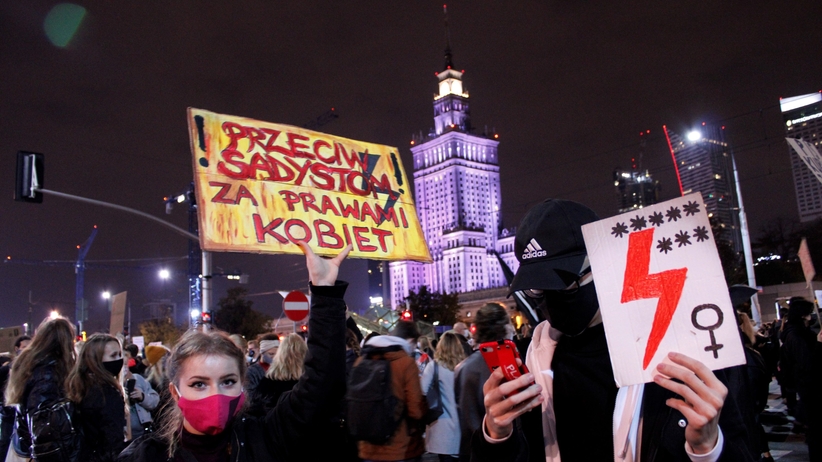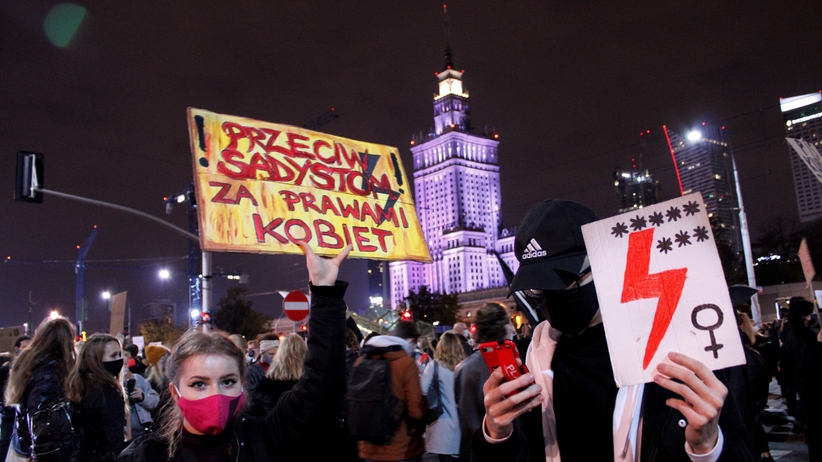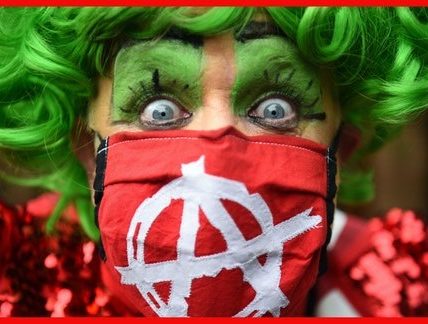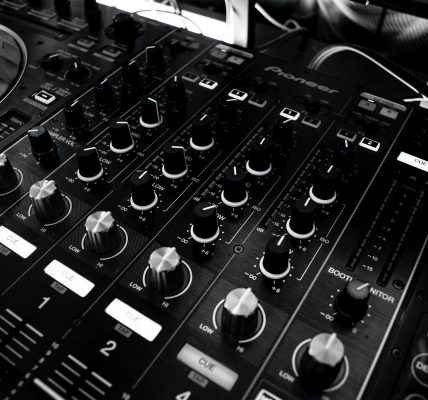Polish Woman’s Strike continues to protest against the near-total ban on abortions

Just last week one of the Women’s Strike leaders was charged with criminal felonies, which, if she is sentenced, could lead to larger protests as it would no longer be just about abortion laws, but also about freedom of speech, says dr Grzegorz Piotrowski from the University of Gdansk.
Strajk Kobiet, or Polish Women’s Strike, is a movement that leads large nation-wide protests against the Constitutional Tribunal’s war on abortion laws.
The 2020 Polish Women’s Strike protests started on October 22nd after the Constitutional Tribunal tightened the law on abortions. Poland already had one of the most restrictive abortion laws in Europe and the recent ruling made them even less accessible. Abortions are now only available in extreme cases like rape, incest or when the mother’s life is in danger.
Leader of the Polish Women’s Strike, or Strajk Kobiet, Marta Lempart has been charged with more than forty offences and arrested countless times in the past. The charges she currently faces include organising protests during a pandemic which could be up to 8 years of imprisonment.
Dr Grzegorz Piotrowski, Vice-President of Zatoka Foundation and professor of sociology at the University of Gdańsk, believes that this will just fuel the protests.
Inspired by the women in Iceland in 1975, Marta Lempart started the movement half a decade ago when she called for the first national protest on the 3rd of October 2016. This was in response to Poland’s conservative Law and Justice Party (PiS) attempt to ban all abortions except those necessary to save a woman’s life. The protests had a dramatic impact and the legislation was voted down.
Recent protests began again on the 27th of January this year after the ruling was formally published. Previously abortions were legal in cases of serious foetal abnormalities, rape, incest or if the mother’s life is in danger with foetal abnormalities equalling to 1,074 of 1,100 abortions performed in the country last year. The new ruling will make this illegal, most likely increasing the illegal abortions and women traveling overseas for abortions.
Polls show that the largest group that supports the liberalisation of the abortion law is the youngest group. This is seen in the protests as most of those participating are aged 18-24.
The age of the protesters means the form of protests has changed. Many young people joined the protests and use slogans inspired by pop culture, video games, or memes which are sometimes difficult for the older generation to understand, Dr Grzegorz Piotrowski and Dr Magdalena Muszel, President of Zatoka Foundation, added.
“Even if there will be no visible changes at the moment, in terms of changes in the law – these will come when these youngest people go and vote,” Dr Grzegorz Piotrowski said. He and Dr Magdalena Muszel are hopeful that there will be big changes in the next parliament elections in 2023 when a large part of the young generation will be able to vote.
The younger generation and the pandemic have also moved part of the protest online. There has been a widespread protest online called the remote blockade for people who do not want to attend it in person. The organisers block parliament members and anti-choice activist’s email accounts.
The 2020 Women’s Strike movement is different to the 2016 as people start realising and understanding the role of the Catholic church has in the issue. “The Catholic church is heard less among the younger generation,” says Dr Grzegorz Piotrowski, as church officials became a target of the protests.
The number of people going to Sunday services is decreasing radically, which is giving power to the Women’s Strike as one of their goals is to separate the church from the state.
A near-total abortion ban will have an effect on the country in the years to come. John Donohue is an American economist who published a controversial paper on the impact of legal abortion on low crime rates in 2001. He looked at the drastic drop in crime in the 90s in America and the correlation between the legalisation of abortion in the 70s.
This year he released a paper with data from the past 20 years. The results have gotten stronger over time, with all the predictions made proving to be correct.
Many tried to explain the dramatic drop in crime in the 90s in the US with more policing, a better economy and stricter prison sentencing. However, none explained the situation like the legalisation of abortions in the 70s. John explains this with the fact that there is a time delay for the results.
The paper was met with criticisms and doubts, but 20 years since its initial release, a second paper has proven that the results have gotten stronger over time.
“If in the past they were already very restrictive, they have already suffered some of the harms and really the only change will be how much harder it will be for women to have access to abortions,” John Donohue comments on the unfolding situation in Poland.
Poland will feel the effects of the near total abortion ban in the years to come, while the generational divide in the country will make the next parliament elections one to watch.





